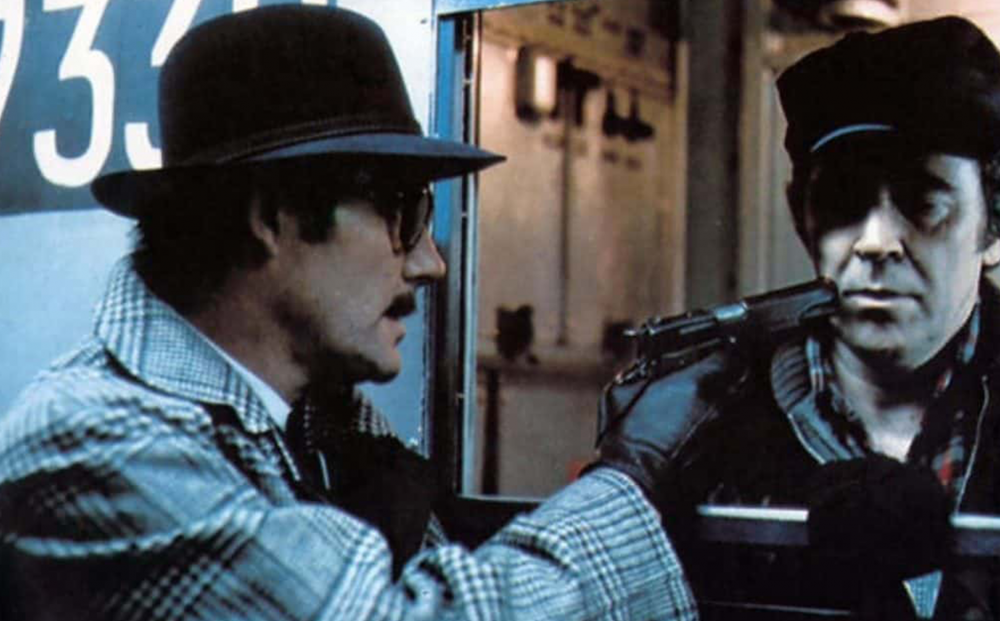THE TAKING OF PELHAM ONE TWO THREE
U.S., 1974
Directed by Joseph Sargent
Starring Walter Matthau, Robert Shaw, Martin Balsam, Héctor Elizondo
Approx. 104 min. 35mm.
“Screw the goddamn passengers! What do they want for their thirty-five cents? To live forever?” Just a typical day on the East Side IRT, as a No. 6 train starts its downtown run from Pelham Station in The Bronx at the scheduled departure time of 1:23 PM (there’s your title) — then gets hijacked by heavily-disguised men: Mr. Brown (Earl Hindman), shnurfling Mr. Green (Martin Baslam), trigger-loving Mr. Grey (Héctor Elizondo), and their icy-cold leader Mr. Blue (Robert Shaw) — color-coded aliases: are you listening, Mr. Tarantino? “This city hasn’t got a million dollars!” kvetches the schmucky, flu-plagued Koch-lookalike mayor (this was the era, after all, when Jerry Ford told NYC to “drop dead”) to hovering spin doctors when he gets that ransom ultimatum: cough up the dough in an hour or the 17 passengers (your typical fellow riders: a hooker, a philosophical old Jewish man, a mother with two bratty kids, Matthew Broderick’s dad James as the conductor, et al.) get wasted, or one corpse for each minute late. Wisecracks and bullets fly as Walter Matthau’s quick-witted TA cop Lt. Zachary Garber gives a guided tour to embarrassingly polyglot Tokyo subway execs; dispatcher Jerry “I’ll believe anything” stiller doesn’t believe it; the ransom-carrying cop car jackknives in Astor Place; and Matthau negotiates with the all-business Mr. Blue via subway squawkbox. A crackling adaptation by the late Peter Stone of the John Godey bestseller, featuring terrific (and accurate) Gotham locations, knife-edge hilarity, a thrilling jazz score by David Shire, and third-rail brand jolts — evoking a New York that, while not exactly the golden age, was a time when you could still buy a token… for thirty-five cents!
With support from the Ada Katz Fund for Literature in Film.
Reviews
“Walter Matthau is gruff, shaggy and sardonic as a Transit Authority lieutenant; Robert Shaw is clipped and cruel, and the supporting performances are allowed to grow and take on personality. These aren’t machine-made genre characters, but individuals (and, more specifically, New Yorkers with gallows humor, paranoia, warmth and resiliency).”
– Roger Ebert
“Superior exercise in urban paranoia.”
– Dave Kehr

